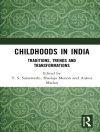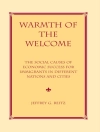Soon after publication in 1985, The Myth of Women »s Masochism became one of the most influential works in women »s psychology. Paula Caplan rejects the accepted wisdom that women enjoy pain and abuse, and argues that, on the contrary, much of the pain women endure is to avoid further, or worse, treatment. Women stay with abusive husbands in order, for instance, to protect themselves and their children from the greater suffering of poverty. She makes the point that the quintessentially feminine traits of nurturing, patience, and self-denial are not pathological, as is often stated. Her book confronts the myth of women »s masochism as it affects every aspect of women »s lives; it challenges psychiatry to change the way it percieves women; and it offers women a positive new view of themselves.
In the new preface to this edition, Paula Caplan regrets that most of the data still apply, and speculates why that is. She also provides an update on the views of the American Psychiatric Association on women »s masochism, theerby revealing much about the condition of women in our civilization.
The Myth of Women »s Masochism is likely to remain relevant for some time, a key text for women »s studies courses and a source of confidence for women themselves.












